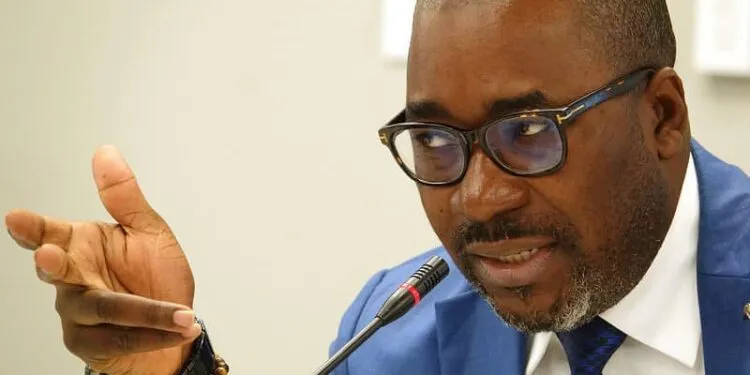By Njong Shey
Human rights lawyer and former president of the Anglophone Civil Society Consortium, Barrister Agbor Nkongho, popularly known as Agbor Balla, has revealed that he and other Anglophone leaders were planning to suspend the ghost town operations before their arrest.
Speaking on Buea-based Dash Radio on Friday, Agbor Balla explained that the ghost towns were initially intended as a temporary measure to protest the marginalization of English-speaking Cameroonians.
“Ghost town was a temporary measure. We were planning to suspend the ghost town before we were arrested,” Barrister Balla said.
Origins of the Ghost Towns
As leader of the Anglophone Civil Society Consortium in 2016, Agbor Balla helped spearhead negotiations with the government following widespread protests by Common Law lawyers and Anglophone teachers.
These groups had raised grievances about systemic discrimination in Cameroon’s dual legal and educational systems.
The consortium declared ghost towns across the Anglophone regions to pressure the government into meaningful dialogue.
The ghost towns paralyzed economic, social, and educational activities, prompting the Yaounde regime to begin negotiations.
However, when talks failed to yield progress, the government arrested Agbor Balla and Dr. Fontem Neba, and banned the consortium.
Despite their imprisonment for eight months, the ghost town operations have continued every Monday for the past eight years. It has become a hallmark of the Anglophone Crisis.
Separatists have also used ghost towns to force the population into boycotting national events like Youth Day, National Day, Women’s Day and Labor Day.
The phenomenon has also adversely affected education, depriving hundreds of thousands of Anglophone children of education.
Agbor Balla stated that the school boycott was never part of his vision for the struggle.
“I am someone who believes in kids going to school,” he said.
Agbor Balla’s Signature Forged, Separatists Take Over Consortium
Agbor Balla also revealed that while he was in prison, his signature was forged to transfer leadership of the consortium to diaspora activists, Mark Bareta and Tapang Ivo.
“They frauded my signature and transferred the consortium to Mark Bareta and Tapang Ivo,” Balla said.
When Agbor Balla was in prison, Tapang Ivo and Mark Bareta suddenly became leaders of the consortium.
A document circulated at the time indicated that Agbor Balla had transferred the leadership to these two individuals who were abroad.
Under their leadership, he argued, the movement shifted from advocating for federalism to full-blown separatism.
“They betrayed the course, shifting the position from federation to separation. They are the blackleg,” he said.
Never Supported Secession
Clarifying his stance, Agbor Balla insisted that he has never supported secession.
“I have never been an exponent of separation. I believe that federalism could be the panacea,” he said.
He, however, added that consortium actions yielded benefits, as issues like federation, which the government had outlawed, can be freely discussed today.
“Let people appreciate certain things that we have made that are relevant today. I have friends who are separatists. We are not in North Korea, where everyone thinks alike. There are certain things about my jail I can’t say here,” he added.
While maintaining friendships with separatists, he condemned the violence that emerged after his arrest.
“People are not interested in the country being broken. We came, and we took it to a different level. Others who took after us became violent. Took the population hostage, terrorised the population.”
He also acknowledged the military’s role in restoring order in most parts of the Anglophone Regions but said the government has yet to win the trust of the Anglophone people.
“Government has not won the minds in North West and South West. I still believe that government needs to rethink to win hearts and minds in North West, South West so that they should feel they belong.”
No Presidential Ambitions for Now
Asked whether he would run in the 2025 presidential election, Agbor Balla dismissed the idea.
“This is not the moment for me to run for president,” he said.
However, he suggested that it is time for an Anglophone to lead Cameroon. He mentioned figures like Barrister Akere Muna and Hon. Joshua Osih, as well as competent Anglophones within the ruling CPDM party.
Regarding his political affiliations, he revealed that he maintains friendly ties with multiple opposition parties, including the MRC, and SDF.
“I am friends with the MRC too. Kamto used to be my lawyer,” he disclosed.



